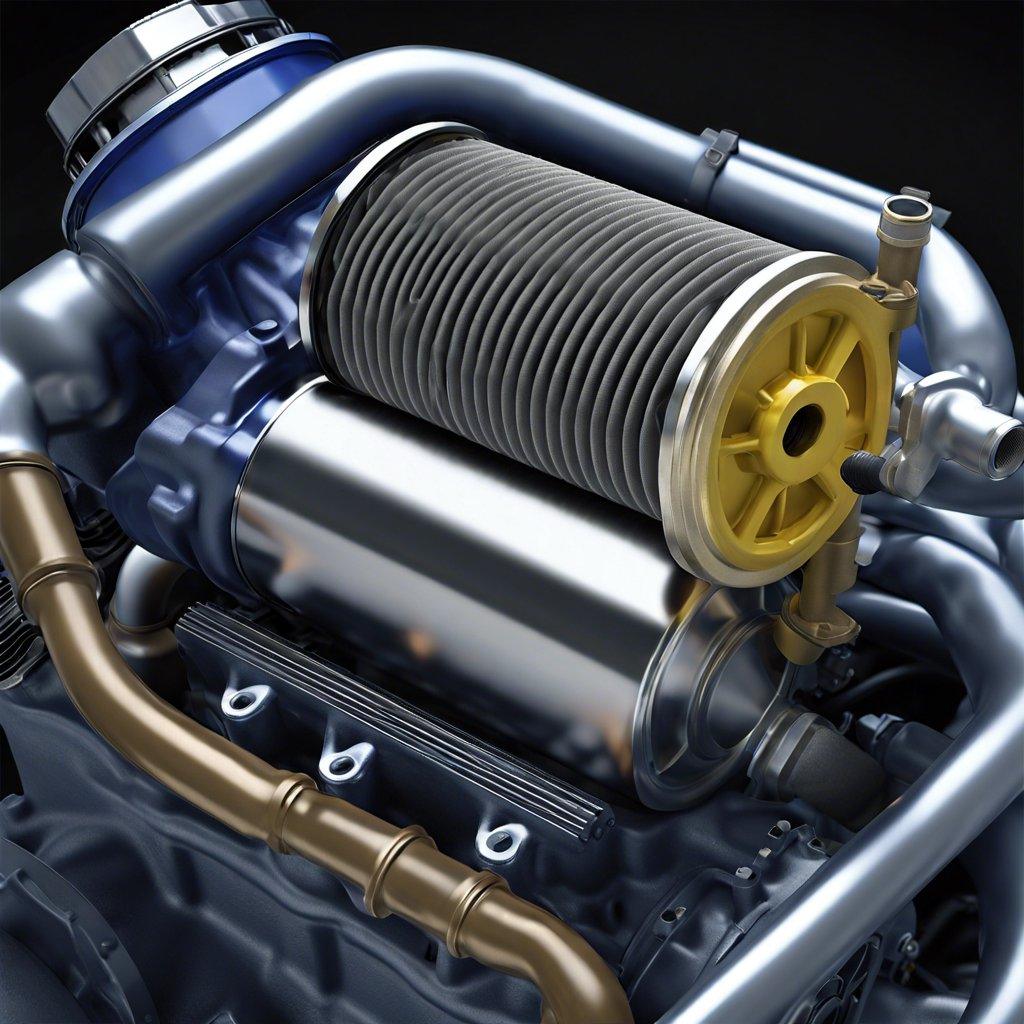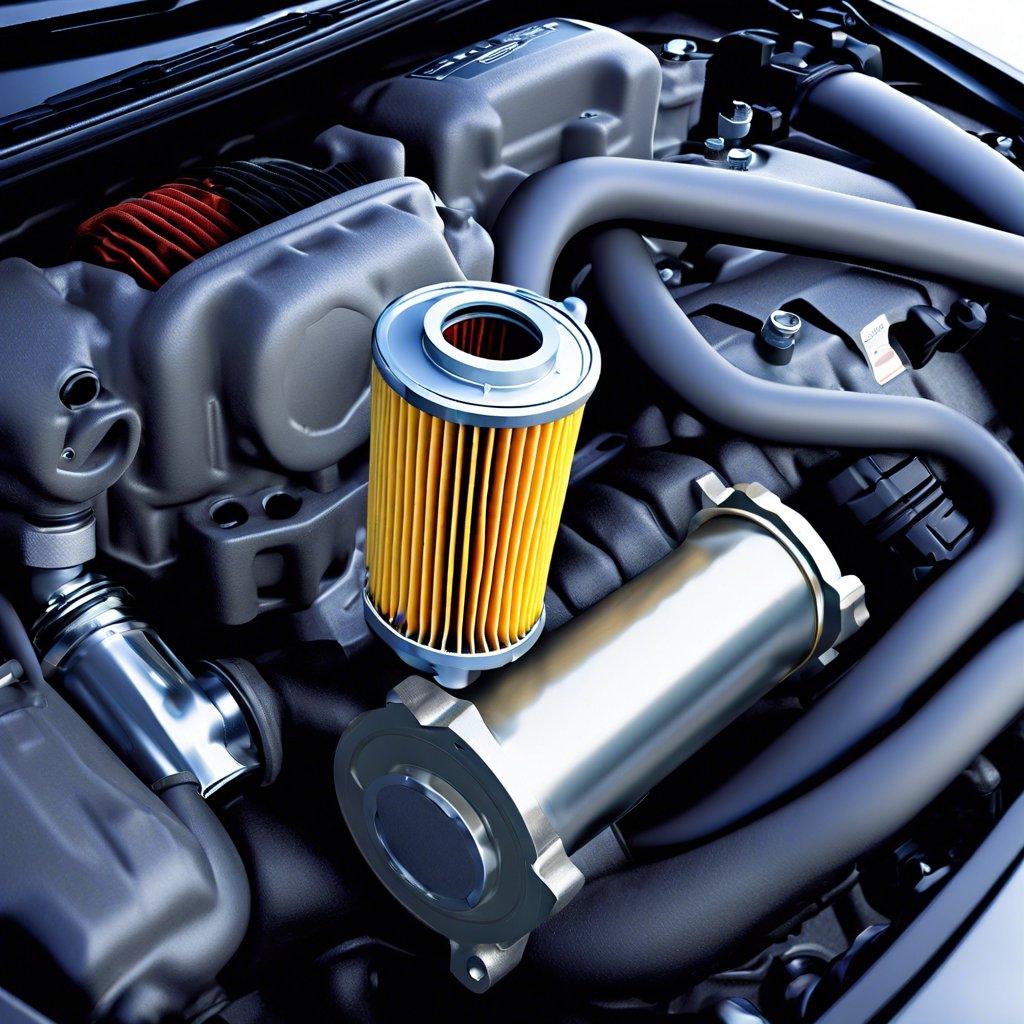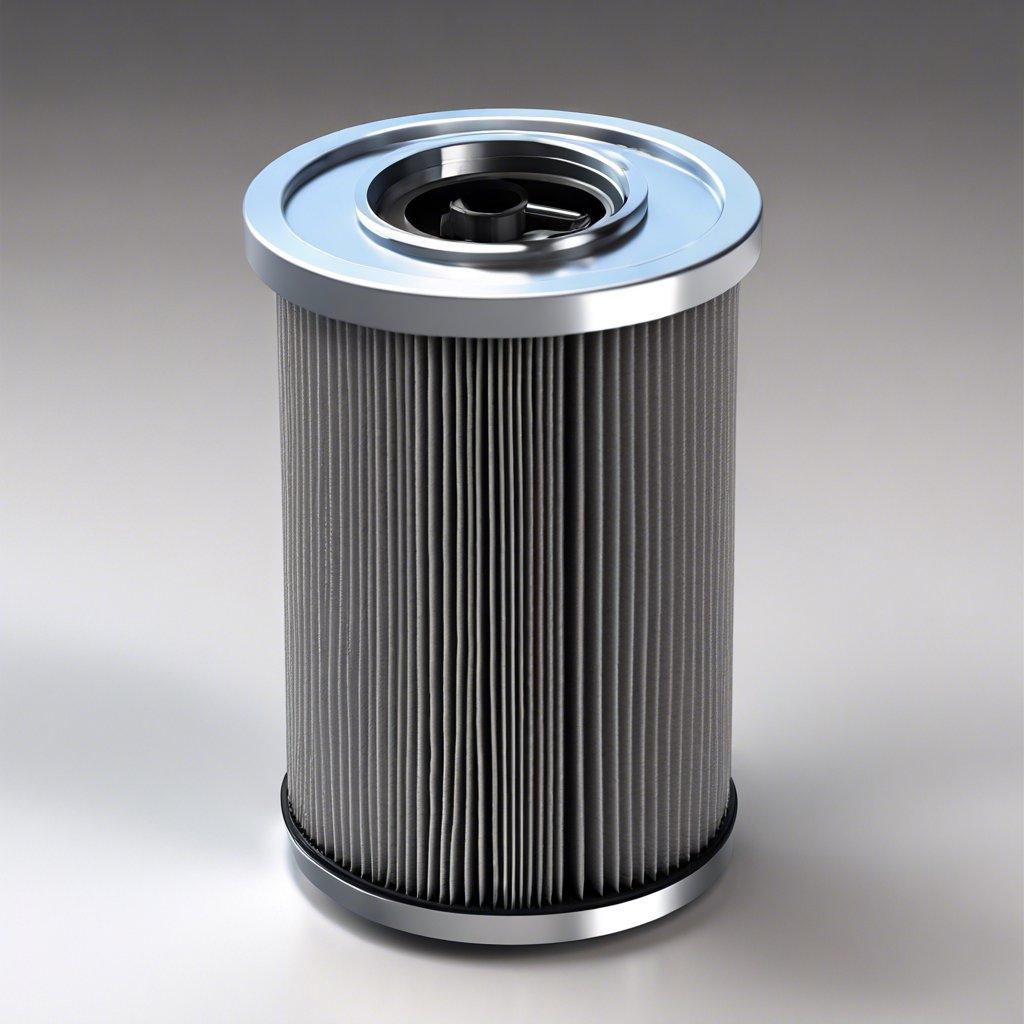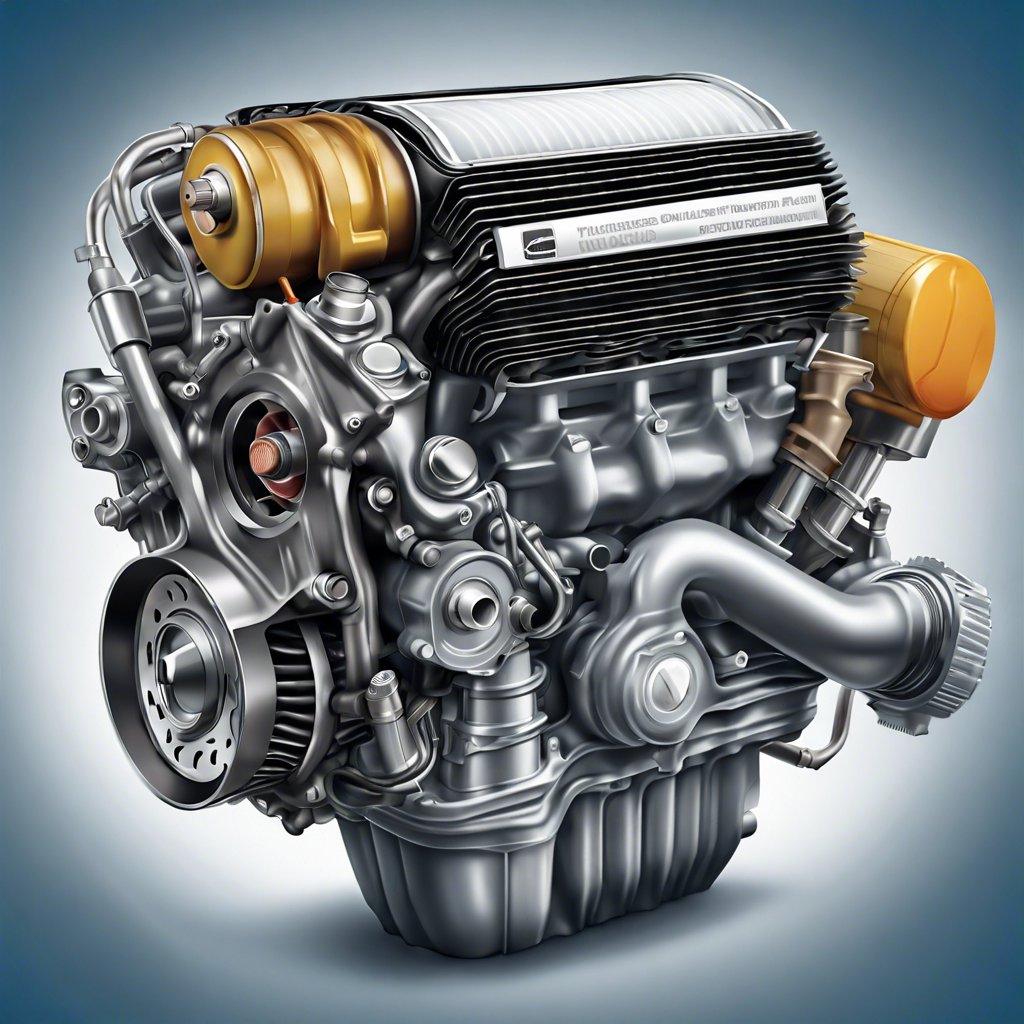Evaluating Fuel Filter Change Costs: What You Need to Know
Understanding the Importance of Fuel Filter Maintenance

Maintaining the fuel filter in your vehicle is a crucial aspect of ensuring optimal engine performance and longevity. The fuel filter plays a vital role in removing impurities and contaminants from the fuel, protecting the sensitive components of the fuel system from potential damage. Neglecting fuel filter maintenance can lead to a range of problems, including reduced fuel efficiency, decreased engine power, and even complete engine failure.
The Role of the Fuel Filter
The fuel filter is designed to trap and remove various types of debris, such as rust, dirt, and other particulates, from the fuel before it reaches the engine. This helps to maintain the integrity of the fuel system, including the fuel pump, injectors, and other sensitive components. By removing these contaminants, the fuel filter helps to ensure that the engine receives clean, unobstructed fuel, which can contribute to improved fuel efficiency, reduced emissions, and a smoother overall driving experience.
Consequences of Neglecting Fuel Filter Maintenance
Failing to replace the fuel filter as recommended by the manufacturer can have serious consequences for your vehicle. A clogged or dirty fuel filter can restrict the flow of fuel to the engine, leading to a reduction in power and performance. This can also result in increased fuel consumption, as the engine has to work harder to draw the required amount of fuel. Additionally, a malfunctioning fuel filter can cause premature wear and tear on other fuel system components, such as the fuel pump, which can be costly to repair or replace.
Fuel Filter Replacement Intervals
The recommended frequency for fuel filter replacement varies depending on the make and model of your vehicle, as well as the driving conditions and fuel quality in your area. Generally, it is advised to replace the fuel filter every 30,000 to 50,000 miles, or as specified in your vehicle’s maintenance schedule. However, it is important to consult your owner’s manual or a qualified automotive technician to determine the appropriate replacement interval for your specific vehicle.
Maintaining the fuel filter in your vehicle is a critical aspect of ensuring the long-term health and performance of your engine. By understanding the importance of fuel filter maintenance and adhering to the recommended replacement intervals, you can help to prolong the life of your vehicle, improve fuel efficiency, and avoid costly repairs down the line. Remember, a well-maintained fuel filter is an investment in the longevity and reliability of your vehicle.
Calculating the Cost-Benefit Analysis of Fuel Filter Replacement
Understanding the Importance of Fuel Filter Replacement
Fuel filters play a crucial role in maintaining the efficiency and longevity of a vehicle’s engine. Clogged or dirty fuel filters can restrict fuel flow, leading to decreased engine performance, reduced fuel economy, and even engine damage. Regularly replacing the fuel filter is essential to ensure optimal engine operation and prevent costly repairs.
Calculating the Costs of Fuel Filter Replacement
The cost of fuel filter replacement can vary depending on several factors, including the type of vehicle, the cost of the replacement filter, and the labor required for the job. To calculate the cost-benefit analysis, you’ll need to consider the following:
- Cost of the Fuel Filter: The cost of the replacement fuel filter can range from a few dollars to several hundred dollars, depending on the vehicle make and model.
- Labor Costs: The labor cost for replacing the fuel filter can vary widely, from a simple DIY job to a more complex repair requiring professional service. The labor cost can range from a few dollars to several hundred dollars.
- Frequency of Replacement: Fuel filters typically need to be replaced every 30,000 to 50,000 miles, or as recommended by the vehicle manufacturer. The frequency of replacement can impact the overall cost of ownership.
Evaluating the Benefits of Fuel Filter Replacement
While the upfront cost of fuel filter replacement may seem like an expense, the long-term benefits can outweigh the costs. By regularly replacing the fuel filter, you can:
- Improve Fuel Efficiency: A clean fuel filter can improve fuel economy, leading to cost savings on fuel over time.
- Extend Engine Life: Preventing engine damage caused by a clogged fuel filter can help extend the overall lifespan of the engine, reducing the need for costly repairs or replacements.
- Maintain Engine Performance: A well-functioning fuel filter ensures proper fuel delivery, which can help maintain engine power, acceleration, and overall performance.
Calculating the Cost-Benefit Analysis
To calculate the cost-benefit analysis of fuel filter replacement, you’ll need to consider the following factors:
| Factor | Cost |
|---|---|
| Cost of Fuel Filter | $X |
| Labor Costs | $Y |
| Frequency of Replacement | Every Z miles |
By comparing the total cost of fuel filter replacement to the benefits of improved fuel efficiency, extended engine life, and maintained engine performance, you can determine the overall cost-benefit of regularly replacing the fuel filter.
Ultimately, the decision to replace the fuel filter should be based on a thorough analysis of the costs and benefits, as well as the specific requirements and recommendations for your vehicle. By understanding the importance of fuel filter maintenance and calculating the cost-benefit analysis, you can make an informed decision that helps optimize the performance and longevity of your engine.
Optimizing Fuel Filter Lifespan: Strategies for Efficiency
As engineering and technology professionals, it’s essential to understand the importance of maintaining fuel filters in your equipment or vehicles. Proper fuel filter maintenance can not only extend the lifespan of your fuel filter but also optimize your overall fuel efficiency and system performance. In this comprehensive guide, we’ll explore strategies and techniques to help you get the most out of your fuel filter investments.
Understanding Fuel Filter Replacement Intervals
One of the key factors in optimizing fuel filter lifespan is understanding the appropriate replacement intervals for your specific equipment or vehicle. Manufacturers typically provide recommended service intervals, which are based on factors such as engine type, fuel quality, and operating conditions. It’s important to adhere to these guidelines to ensure your fuel filter is changed at the right time, preventing premature failure or excessive wear.
Monitoring Fuel Filter Condition
Regular inspections and monitoring of your fuel filter’s condition can help you identify potential problems before they escalate. Look for signs of clogging, such as decreased fuel flow or increased pressure drop across the filter. Additionally, be on the lookout for any visual signs of deterioration, such as cracking or leaks.
Implementing Preventive Maintenance Strategies
Proactive maintenance is key to optimizing fuel filter lifespan. This includes:
- Regularly changing the fuel filter according to the manufacturer’s recommendations
- Ensuring the fuel system is free of contaminants by using high-quality fuel and properly maintaining the fuel tank and lines
- Monitoring fuel system pressure and flow to identify any potential issues early
- Considering the use of fuel additives or conditioners to help maintain fuel system cleanliness
Evaluating Fuel Filter Change Costs
| Cost Factor | Considerations |
|---|---|
| Filter Replacement Cost | The direct cost of the fuel filter itself, which can vary depending on the make, model, and quality of the filter. |
| Labor Costs | The time and effort required to replace the fuel filter, including any specialized tools or equipment needed. |
| Downtime Costs | The potential lost productivity or revenue associated with taking the equipment or vehicle out of service for fuel filter replacement. |
By carefully evaluating these cost factors and implementing proactive maintenance strategies, you can optimize the lifespan of your fuel filters, ultimately reducing overall maintenance costs and improving the efficiency of your operations.
Understanding the Significance of Fuel Filter Replacement
Fuel filters play a crucial role in maintaining the efficiency and longevity of an engine. They are responsible for removing contaminants, such as dirt, rust, and other impurities, from the fuel before it reaches the engine’s sensitive components. Neglecting to replace a fuel filter can lead to various issues, including decreased fuel efficiency, reduced engine performance, and even permanent damage to the fuel system.
Factors Influencing Fuel Filter Replacement Costs
The cost of fuel filter replacement can vary depending on several factors, including:
- Vehicle Make and Model: The type and complexity of the fuel system, as well as the specific fuel filter required, can significantly impact the replacement cost.
- Labor Costs: The labor required to access and replace the fuel filter can vary, depending on the vehicle’s design and the mechanic’s expertise.
- Parts Availability: The availability and cost of the replacement fuel filter itself can also affect the overall replacement cost.
- Frequency of Replacement: The recommended replacement interval for the fuel filter, as specified by the manufacturer, will determine how often the filter needs to be changed, which can impact the long-term costs.
Evaluating the Total Cost of Fuel Filter Replacement
When estimating the total cost of fuel filter replacement, it’s essential to consider the following:
| Cost Factor | Description |
|---|---|
| Parts Cost | The price of the replacement fuel filter, which can vary based on the vehicle make and model. |
| Labor Cost | The labor charges associated with the replacement process, which can range from a simple filter swap to a more complex procedure. |
| Disposal Fees | The cost of properly disposing of the used fuel filter, as required by environmental regulations. |
| Opportunity Costs | The potential lost productivity or downtime associated with the vehicle being unavailable during the replacement process. |
Strategies for Minimizing Fuel Filter Replacement Costs
To help manage the costs of fuel filter replacement, consider the following strategies:
- Adhere to the Manufacturer’s Recommended Replacement Interval: Following the manufacturer’s guidelines for fuel filter replacement can help prevent premature failure and minimize the need for more frequent replacements.
- Explore Aftermarket Options: Investigate the availability and quality of aftermarket fuel filters, which may offer cost savings compared to original equipment manufacturer (OEM) parts.
- Perform Preventive Maintenance: Regularly inspecting and servicing the fuel system can help identify potential issues early, reducing the likelihood of more extensive and costly repairs in the future.
- Consider the Long-Term Costs: Evaluate the overall lifetime costs of fuel filter replacement, including the frequency of changes and the impact on engine performance and fuel efficiency.
Navigating the complexities of fuel filter replacement costs is essential for engineering and technology employees responsible for maintaining and optimizing vehicle fleets. By understanding the factors that influence these costs and implementing effective strategies, organizations can ensure the longevity and efficiency of their vehicles while minimizing the financial burden of fuel filter replacement.




Post Comment